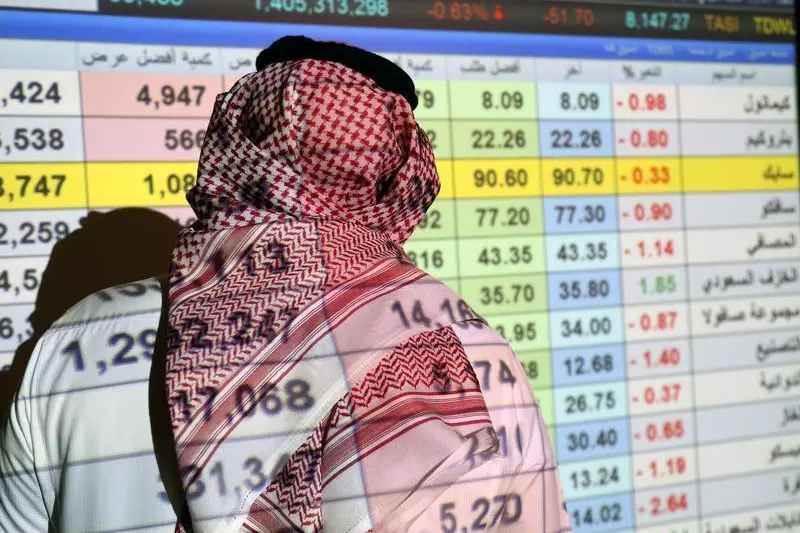PHOTO
Most stock markets in the Gulf ended lower on Thursday, as central banks' aggressive rate-hike approach to tame inflation stokes fears of a rapid economic slowdown.
On Wednesday, central bank chiefs from the U.S. Federal Reserve, the European Central Bank and the Bank of England met in Portugal and voiced their renewed commitment to control inflation no matter what pain it caused.
The MSCI World Equity Index was last down 0.67% with year-to-date losses at more than 20%, the most since the index's creation. The decline has wiped $13 trillion off stock values.
Saudi Arabia's benchmark index gave up early gains to close 1.7% lower, with Al Rajhi Bank falling 2.6% and Saudi National Bank retreating 3.5%. The Saudi index has lost almost 12% this quarter, its worst performance since the start of the pandemic.
Dubai's main share index fell 0.7%, posting quarterly losses of more than 8%, with top lender Emirates NBD down 1.5%. The Dubai market was volatile and remained under pressure after a small rebound, said Farah Mourad, senior market analyst of XTB MENA. "The market could return to new price corrections as concerns around the global economic conditions continue to affect investors' sentiment."
In Abu Dhabi, equities eased 0.4%, hit by a 0.7% fall in International Holding, a day after the conglomerate briefly touched a record valuation of more than $150 billion. However, losses were limited by a 1% rise in the United Arab Emirates' biggest lender First Abu Dhabi Bank, after HSBC raised its rating on the bank to "Hold" from "Reduce". The Abu Dhabi index logged a quarterly loss of 5.8%, its first quarterly fall since March last year.
The Qatari benchmark slipped 0.4%, with the Gulf's largest lender, Qatar National Bank, declining 0.7%. The index recorded a quarterly loss of nearly 10%.
(Reporting by Ateeq Shariff in Bengaluru; Editing by Vinay Dwivedi)




















